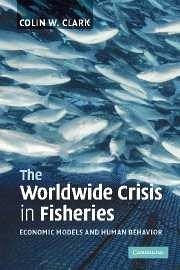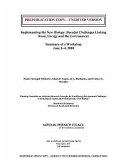The world's marine fisheries are in trouble, as a direct result of overfishing and the overcapacity of fishing fleets. Despite intensive management efforts, the problems still persist in many areas, resulting in many fisheries being neither sustainable nor profitable. Using bio-economic models of commercial fisheries, this book demonstrates that new management methods, based on individual or community catch quotas, are required to resolve the overfishing problem. Uncertainty about marine systems may be another factor contributing to overfishing. Methods of decision analysis and Bayesian inference are used to discuss risk management and the precautionary principle, arguing that extensive marine reserves may be the best way to protect fisheries, alongside a controlled catch quota system. This book will be of interest to environmental scientists, economists and fisheries managers, providing novel insights into many well-known but poorly understood aspects of fisheries management.
Hinweis: Dieser Artikel kann nur an eine deutsche Lieferadresse ausgeliefert werden.
Hinweis: Dieser Artikel kann nur an eine deutsche Lieferadresse ausgeliefert werden.








